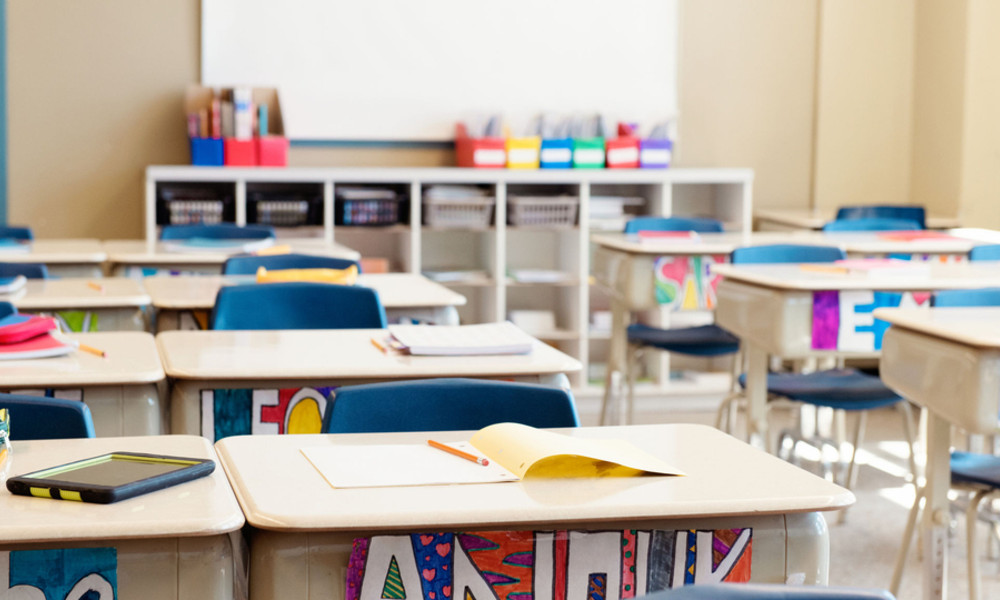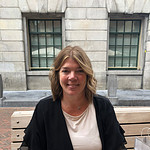A safe base for the conversation between parents and teachers
- Research stories

'A smooth transition from pre-school facilities to regular primary education for children with special educational needs, that's what we want to contribute to with our research,' says PhD candidate Aline Oelen. This transition is often stressful for students, their parents and the teachers.
The aim of the research is to improve collaboration between home, school and healthcare professionals and to reduce stress for education professionals and families, so pupils can make a good start for their further school trajectory.
Professor and project leader Margreet Luinge submitted a research proposal, supported by parties from the professional practice. A partnership was established with three primary schools, educational organisation Cedin and the Molendrift aid organisation. 'This way what we research has a direct relationship with the practice,' says Margreet, ‘which is what we really want.' With the arrival of PhD candidate Aline in June 2022, the research could really start, in close collaboration with parents' association Balans. 'We involve the parents' association from the start,’ Aline says.
'If you want to increase equality of opportunity and participation opportunities, you have to give children a good start at primary school. If things don't go well there, it can have a long-lasting effect on their lives,’ Margreet explains. 'With our research, we want to help offer children a good place to learn. This way they can learn safely and play without worries. That's why our goal is to reduce stress for parents and teachers. This also helps the child to attend school in peace.' Engaging and continuing to talk to each other is a prerequisite for this. 'From the start, parents should be able to discuss what is going well and what is not in a safe situation. After all, they are the experts by experience. If they can practice here, they can start the conversation more easily later.'
'We want to connect well with what is going on among parents,' says Aline. For the first study, they asked parents in two focus groups about their experiences and wishes. They processed the results and then discussed them again in a focus group. 'It doesn't always run smoothly. Very often things go well, but parents tend not to talk about this much. It is striking that, if the transition is less easy, parents often do not feel involved.'
Applied psychology student Marleen Kromkamp recognizes this. She is writing her graduation thesis on the role of parents and heard a parent say: ‘I arrived for the conversation with the teacher, and there turned out to be a whole range of professionals as well. I didn't know anything about that. And then, at the end, there’s time for me to say something about my own child.' Marleen looks at how parents can best prepare their conversations. 'It's important that they know what to expect and that they decide in advance what they want to share and what they like to keep private. Parents sometimes feel that they are not being listened to properly. Sitting down together and talking about the child helps. So, as a teacher, start a conversation and listen carefully to the parents first.' Aline adds: 'Also discuss what you notice as a teacher. This reduces stress.’
The findings are in line with the experiences of parents' association Balans. 'Parents felt the conversations in the focus groups were very pleasant and considered. They had animated conversations, and felt “heard”', says chairman Joli Luijckx about the meetings. 'We often heard that parents don't feel taken seriously by the teacher and don't feel that there is cooperation. By not communicating or communicating too late, misunderstandings and conflicts arise. Parents are not being difficult, but they stand up for their child. And a listening ear can be so supportive in this situation. It is important to discuss the wish for support together and to clarify mutual expectations. Involve parents right from the moment their child is registered. Make agreements and see what is appropriate. This way, there is equal collaboration from the start. Nothing is as complicated as communication. Be aware that if you don't communicate well in the beginning, it may take a lot of time later in the process. So, as a teacher, invest in that start. This saves you time in the long run and frustration and money as well. Communication problems are almost always the cause of problems.'
It is expected that The Family Conversation will be a suitable instrument for conducting discussions. This is a method used in elderly care, which provides conversation tools to facilitate cooperation between healthcare professionals and between professionals and families. 'In elderly care, they had good results with this approach. The family learns to rely on each other and on care more, which improves care and results in a more equal division of care tasks among themselves. Hopefully we will achieve that here as well, which would be great,’ Aline says enthusiastically. 'We think that a family conversation can also work very well here. In both cases, it's about mutual cooperation and communication, about being seen.' Margreet adds: 'We are the first to transfer this method from healthcare to an educational context. The application is still under development, but if it works well, we will go for a national roll-out!'
In order to be able to conduct the family conversations properly, they have made a guide for teachers, internal supervisors and other education professionals. Listening well becomes an important part in this. 'Of course, just giving a helping hand is not enough,' says Aline. 'That is why we are organising a training course for teachers and other employees of our covenant partners this autumn. Then they get to work with it in practice.' That's not the end of it for Aline and her team, because they follow the entire process up to and including implementation. 'Does the training in practice fit in with what we have come up with? What is the effect on teachers and parents? Do they have less stress? That's what we're trying to measure,' says Aline.
Fenje Koksma, internal supervisor and teacher at groups 2 and 3 CBS De Merlettes, is involved in the development of the guide. 'I read the guide and gave recommendations from the practice. I think it is a suitable tool to start well-informed and based on equality. As a teacher and internal supervisor, you will be given extra tools to optimize that initial phase. It is good to get a framework for the conversation as this prevents topics from being underexposed. This way you have a stronger position in the conversation and cooperation with the parents. I'm curious about how it will work and expect it to be a nice addition. In the new school year, I will follow the training together with two colleagues and then start working with it. A group from our colleague school, the Twa-Iker, will not be doing that.'
'By comparing the results with the experiences of teachers who have not followed the training, we hope to find out what works and what doesn't,' Margreet adds. 'We take this measurement just before and just after the transition to primary school and six months later.'
It is precisely the transition from one system to the next that is sometimes difficult. This does not only apply to primary education. That is why Margreet, together with colleagues Henderien Steenbeek and Margot Bochane, recently started a second study. 'Margot researches the transition from primary to secondary education. Depending on possible problems, we will then look for an appropriate method to ease that transition as well. A safe basis for the conversation between parents and teachers throughout the child's school career. We hope to contribute to that.'
More information about the project 'A smooth transition' (Dutch)

Lector Talig functioneren & Gezond ouder worden
Zernikeplein 9, 9747 AS Groningen

Onderzoeker lectoraat Jeugd, Educatie en Samenleving
Zernikeplein 9, 9747 AS Groningen
How satisfied are you with the information on this page?